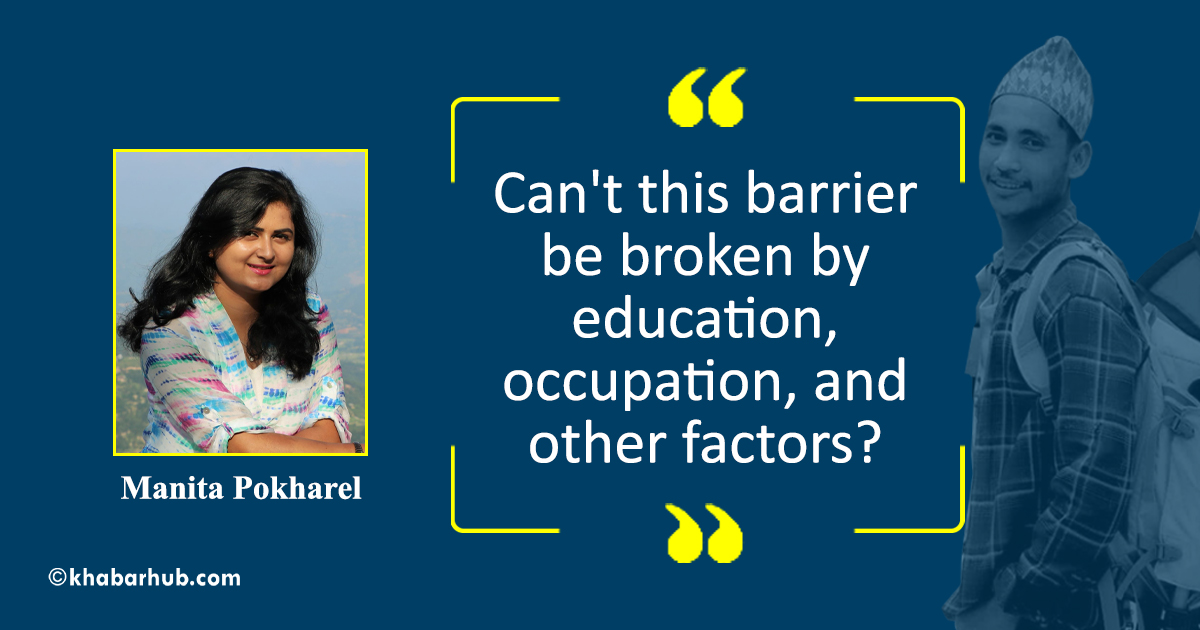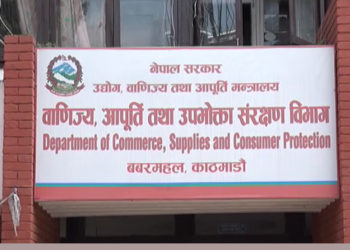I am a believer in caste and culture not because my upbringing was so or because I was manipulated to believe in it. It is because, if you go deep inside crossing the surficial ground, there lies a reason for the existence of anything.
Whenever my eyes and ear hits the news/footage and reviews on the recent Rukum incident, my heart swells like anything. The incident is no less than a climax of a cinema, pre-planned and cruel to the next level. The suffering to the family and village after this tragedy is beyond our imagination.
Neutrally coming a little bit outside of the story, willpower and ego have fought against the morale. The implication of respect to family’s decision making on the marriage process has fallen somewhere. Above all the philosophies, this Thakuri family and villagers have lost their respect by creating the unbearable harm of losing young citizens of a country and the ray of hope to the family.
Can’t this barrier be broken by education, occupation, and other factors? Why are marriages pretended to be the best version of the war between castes?
The merciless action to compel these 19 youths to “do or die” in their mission of marrying a girl from the Thakuri community, makes this Thakuri group deserving to bear the legal punishment for killing lives. But, the curiosity lies on another fold of book, the not revealed version of the story.
There’s no law published alerting to not to marry among different caste. Without disagreeing the fact, exercising our brain is essential to understand the barrier.
Can’t this barrier be broken by education, occupation, and other factors? Why are marriages pretended to be the best version of the war between castes?
If it succeeds it does but if it doesn’t, life shall not end there. The reason for failures in marriage is also the occupational gap, territorial gap, linguistic gap, and above all the most seen is the financial gap where love fails during the final evaluation before marriages. This is the undiscussed discrimination and have we ever thought on this side?
There are certain beliefs, certain values and even some philosophical subject to carry as a human, that is how sociological aspects were developed. It’s not about upper caste and lower caste, it’s about a particular caste. And, every time one cannot blame their parents or ancestors for believing so. If everyone doesn’t care about it, someone will have to.
Cheers to the successful partners with an inter-caste marriage. You are the inspiration to many. But does it matter to everybody? Might not or might be.
Nevertheless, more than caste as a class, the struggle is between these groups as well; between Nepalese, between religious groups, between abilities and even disabilities, between territories and many more.
Recklessly fighting to end casts and racism has been tagged as a modern era fight but not to be forgotten is that the fight is for equality but not for the rebuttal between who is better and who is not. One has to be promoted but it’s baseless to demote the other one. Let’s not forget that the country like ours sustain on the exposure of its culture to its visitors. Almost every country has its predominant values which shouldn’t be avoided.
Until penning these words, all the above views might be criticized as “a typical castist” by many already.
The hierarchy among Newars exist, so does among Brahmins, the Chhetris struggle same, the Ranas and Thakuri are striving for their identity with the addition of RL, SJB, Bikram between their names to proudly remember their ancestors.
The culture among Madhesis cannot be excluded where marriage between the Thakurs and Mushahar will still be thoughtful, the indigenous communities have fought for years on their distinguished culture among Gurung, Tamang, Lama and Sherpas having interestingly varied costumes and rituals.
The so believed lower caste in Nepal typically called Damai, Kami, or Sarki even does not prefer to get married to each other where one believes that they stand superior to the next.
One can’t remain skeptical when it comes to affection. Specifically, in love, emotions, feelings, and friendship, no boundaries can be set, which is acceptable. But, the reason behind marriage after 20 years of age, as set by the government is also because marriage isn’t a puppet’ exhibition and it has to be a wise decision, not only among two individuals but between two families and ultimately society. Yes, change is certain and it will happen to know the fact that it cannot be pressurized.
The very familiar theory by Karl Marx believes that class struggle will never end, it might reduce to some level but zero cannot be expected.
Nevertheless, more than caste as a class, the struggle is between these groups as well; between Nepalese, between religious groups, between abilities and even disabilities, between territories and many more.
Gender discrimination, race discrimination, and other forms of discrimination exist in society but the action resulting in murder and deaths cannot be pardoned. The stereotyping error in terms of mental war which has been highly practiced after the civil war in Nepal between one caste to another is the unrevealed drawback. The growths in opportunity for the minority group are praiseworthy but the tagline along with the reservation rights are carrying the agile form of discrimination, in many silent ways.
Henceforth, let’s learn to accept each other’s beliefs and morale, and let’s not run behind a particular caste group. We all belong somewhere with equal dignity.









Comment